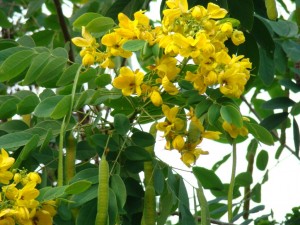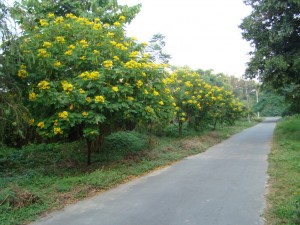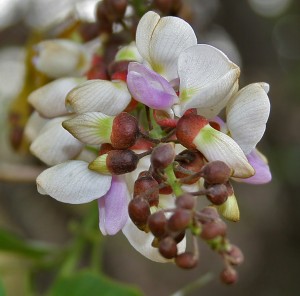Economic Importance of Cassia spp.

Botanical name:
- C. fistula Linn.
- C. javanica Linn.
- C. nodosa Buch.-Ham. Ex Roxb
Family: Cesalpinioideae
Description: Middle sized to large deciduous tree. Leaves with leaflets in opposite pairs, ovate. Flowers bright yellow, in drooping, long racemes. Pods indehiscent, cylindric, smooth, pendulous, dark- brownish when ripe.
Economic Importance:
The wood is very hard and very heavy. The timber is difficult to season, and liable to severe surface seasoning defects. The trees can best be girdled to reduce these defects. The heartwood is highly durable both in open and under cover. It takes a good and lasting polish.
It yields a durable timber considered to be better than sal and is used everywhere for house posts, bridge posts, agricultural implements, shafts of carts etc. It makes excellent tool furniture, turnery and boat building. It is an excellent fuel wood and yields excellent charcoal.

The bark is known as sumari and is used for tanning in admixture with Cassia auriculata bark. The average tannin content of the commercial is 10 to 12 %. It produces smooth grained leather. It makes well with babul bark.
The pulp of ripe pods is a very strong purgative and is eaten and made into a drink, rich in protein and carbohydrates, given to patients of diabetes and blood poisoning.


